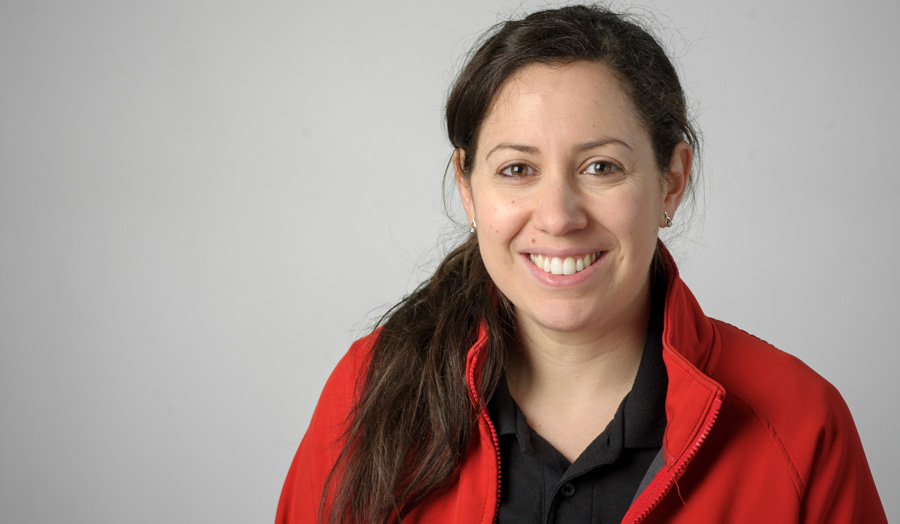Apply for this course
Please select when you would like to start:
If you're a UK applicant wanting to study full-time starting in September, you must apply via UCAS unless otherwise specified. If you're an international applicant wanting to study full-time, you can choose to apply via UCAS or directly to the University.
If you're applying for part-time study, you should apply directly to the University. If you require a Student visa, please be aware that you will not be able to study as a part-time student at undergraduate level.
Why study this course?
This was the world’s first Sports Therapy degree course and was developed in partnership with the Society of Sports Therapists. You’ll learn to recognise, treat and rehabilitate athletes with injuries or dysfunction. Our University's fully equipped sports therapy clinic, which is open to members of the public for consultation and treatment, gives you hands-on experience to complement the scientific learning.
Previous students have gone on to work for organisations such as Arsenal FC and Chelsea FC.
Study a pioneering degree course
This was the world’s first Sports Therapy degree course and was developed in partnership with the Society of Sports Therapists
Accredited by the SST
This course is accredited by the Society of Sports Therapists (SST), which provides student insurance throughout your degree. On graduation, you will be eligible to become a member and purchase public liability insurance from the SST
Gain a First Aid at Work qualification
The first year of the course provides the opportunity to gain a First Aid at Work qualification, which enhances employability from the very beginning of the course
Course modules
The modules listed below are for the academic year 2024/25 and represent the course modules at this time. Modules and module details (including, but not limited to, location and time) are subject to change over time.
Year* 1 modules
Year 2 modules
Year 3 modules
Applied Sports Science
This module currently runs:spring semester - Thursday morning
(core, 15 credits)
This module provides the foundations for the research analysis and activity which you will pursue throughout your degree program. You will develop the skills required to read, interpret and analyse research in a variety of forms. This module also introduces you to methods of data analysis using computer software. You will enhance your planning, preparation, academic writing styles, referencing and resourcing. With regard to data analysis, the aim of the module is to enable you to apply statistical techniques to data, as part of your other studies as well as in a more general work environment.
The aims of this module are aligned with the qualification descriptors within the Quality Assurance Agency’s Framework for Higher Education Qualifications.
Read full detailsFundamentals of Musculoskeletal Anatomy
This module currently runs:autumn semester - Thursday afternoon
(core, 15 credits)
This module aims to provide an introduction to human anatomy and basic biomechanics of human movement. It is a broadly-based introduction to anatomy of the musculoskeletal system and human movement, and the isolation of specific muscle groups that produce these movements. This module has a bias towards the specific interests of those studying for sports-related degrees. You will have the ability to learn and explore the anatomy of the musculoskeletal system and human movement of the lower limb, upper limb and trunk.
Thus, among other topics, you will learn to identify and name structures such as bones, joints, muscles and other relevant soft tissue structures found in the human body using appropriate terminology. You will also learn to describe the function of these structures, and understand their relevance to sport and exercise.
The teaching methods include lectures, seminars and practicals. The seminar sessions involve group discussions based on directed learning, which is supported by material available on Weblearn.
Fundamentals of Sports Therapy
This module currently runs:spring semester - Tuesday
(core, 15 credits)
This module is intended to serve as an introduction to examination and assessment of sports and exercise injuries. You will cover core theoretical knowledge regarding common injuries sustained to soft tissues, as a result of sport and exercise. You will learn about the mechanism of injury, aetiology, signs and symptoms, diagnosis and general treatment approaches for frequently sustained musculoskeletal disorders, as well as the purpose of commonly performed components of a clinical assessment. You will also learn the practical competencies a Sports Therapist performs in a clinical setting with regards to an examination and assessment.
Read full detailsHuman Physiology
This module currently runs:autumn semester - Monday
(core, 15 credits)
This module introduces students to the theoretical and practical aspects of human anatomy and physiology in health and disease. It is designed to provide Sport degree programme students with a fundamental knowledge relevant to the continued study of Exercise Physiology This module aims to provide students, through lectures, tutorials and practical classes, with a sound knowledge of human body structure using appropriate anatomical nomenclature and an in-depth understanding of the physiology of selected body systems. The module will also aim to introduce basic concepts in immunology and pathology which are recurring themes in study at Levels 5 and 6.
Read full detailsIntroduction to Biomechanics
This module currently runs:spring semester - Thursday afternoon
(core, 15 credits)
This module aims to provide an introduction to human biomechanics. The focus is on the basic anthropometry and kinematics of the human body. The module is designed to provide students with the basic understanding of mechanical principles of the human body and their application in sport, exercise and rehabilitation. The module aims to help you understand how internal and external forces acting upon the human body affect movement, and how these principles are used to help improve performance. In addition, the biomechanical principles can help you understand the mechanical mechanisms of musculoskeletal injury pathologies, and how to apply them to reduce the risk of injury in sport and guide treatment. In this module you will be able to learn biomechanical measurement techniques, understand and evaluate the relevance of the measurement of the physical characteristics of humans to sport and athletes. You will also learn about how soft tissue structures behave under mechanical load and how it relates to sporting activities, exercise, and rehabilitation techniques.
The teaching methods for this module include lecture and practical sessions. The practical sessions take place in the physiology laboratory and you will be separated in small groups.
Physiological Principles of Training
This module currently runs:spring semester - Monday
(core, 15 credits)
In this module you will be provided with an introduction to the Physiology of exercise a sub-discipline of sport and exercise sciences. This is accompanied by the principles of training and athletic preparation which ensures a bias towards the specific interests of those studying for sports-related degrees.
The aims of this module are aligned with the qualification descriptors within the Quality Assurance Agency’s Framework for Higher Education Qualifications.
You will gain a fundamental grounding in exercise physiology including physiology, biochemistry and cell biology as they relate to exercise performance and so develop knowledge of the immediate responses of the body to exercise and also the longer term adaptations to exercise stimulation
The module encourages an appreciation of the contribution of Physiological Science to sports performance and exercise delivering both theory (the muscular, cardiovascular and respiratory systems) and practical skills (scientific methods of testing and data collection). The training principles element addresses the scientific basis of Sport and exercise performer support, organisation of preparation and the basis of different approaches to training.
The knowledge gained is relevant for a variety of employment opportunities, particularly those within sports science, coaching, personal training and sports therapy. This knowledge transfers directly to Level 5 study in which there are advances in the level of interaction with applied and exercise and environmental physiology.
Read full detailsProfessional and Core Skills
This module currently runs:autumn semester - Thursday morning
(core, 15 credits)
This module is intended to introduce you to the study of sport in higher education at London Metropolitan University as well as developing life-long skills in organisation and application of knowledge.
This module will develop your transferable skills to enable you to derive maximum benefit from your chosen courses of study, provide clear guidance on the University’s teaching, assessment and progression regulations to facilitate smooth passage through your chosen courses of study.
The module will introduce you to the learning resources and support facilities available within the University to assist you with your personal and professional development. The development of study skills will include writing laboratory records, scientific reports and essays.
The module also aims to introduce you to the development, scope and organisation of your chosen sports discipline and its associated professional bodies and employment opportunities. The transferable skills that will be developed will also prepare students for employment.
The module engages you in an exploration of activities that allow skills and knowledge relevant to your field of study to be developed. It allows you to reflect on yourself as a learner, your development in a civic engagement context, as well as a work-based learning and careers context. Additionally, by constructing knowledge as individuals, and as part of a culturally diverse learning community, this module supports your development and achievement, and your ability to communicate effectively in a variety of professional, social and cultural contexts.
Read full detailsSports Trauma Management and Soft Tissue Therapy
This module currently runs:autumn semester - Tuesday
autumn semester - Tuesday morning
(core, 15 credits)
The module is intended to develop trauma management and soft tissue therapy theoretical knowledge and practical competencies.
The trauma management skills refer to both basic and advanced first aid. The module aims to develop on previous experiences in first aid and/or introduce the principles of first aid which enables effective trauma management with situations in different sport and exercise contexts. The module also aims to provide students with advanced theoretical knowledge and practical expertise to apply first aid trauma and injury management safely and effectively.
The theoretical principles of massage therapy, ethical considerations, hygiene and contraindications to massage are covered, as well as practical application of soft tissue therapy in a sport and exercise context.
Read full detailsClinical Examination and Assessment in Sports Therapy
This module currently runs:autumn semester - Monday
(core, 15 credits)
This module is focused upon the safe and effective clinical examination and assessment (E&A) of the peripheral anatomical region of the body and the clinical significance of these E&A findings. The module also develops the students’ understanding of the theory which underpins these practical elements including knowledge of common injuries and the underlying pathophysiology.
The aims of this module are aligned with the qualification descriptors within the Quality Assurance Agency’s, Framework for Higher Education Qualifications. This module aims to provide the students with the knowledge, understanding and ability to safely and effectively conduct a thorough examination and assessment of a peripheral joint. To link theory with practise, this module will also discuss common injuries and the use of the assessment protocol to identify these injuries whilst considering the epidemiology, aetiology and pathology.
The knowledge obtained through completion of this module provides the students with essential skills which are key competencies for their future employment as a Sport Therapist. They will also gain key fundamental skills such as communication, personal responsibility and decision making, which are transferable to a wide range of employments.
Read full detailsEnvironmental Exercise Physiology
This module currently runs:spring semester - Tuesday morning
(core, 15 credits)
You will be familiarised with a variety of field and laboratory-based tests of physical performance to assess components of fitness and work capacity associated with strength and power-based sports and muscle metabolism.
Secondarily you will undertake study into the impact on exercise of specific environmental exposure on physiology associated with high altitude hypoxia, high environmental temperatures and humidity including fluid balance and cold exposure.
The module builds on the Level 4 study of Physiology and links in specifically with the Level 6 module which follows in the Spring semester. Key concepts of anaerobic energy production in strength and power sports and muscle metabolism will be addressed. In additionally you will learn about the highly practical and industry related concepts of athlete support provision with specific reference to an appreciation of the impact of environmental impacts on exercise training and performance and potential ergogenic benefits of exposure extremes such as high temperatures and humidity.
Exercise Physiology
This module currently runs:autumn semester - Tuesday morning
(core, 15 credits)
This module introduces you to the responses of tissues and organs to acute and chronic exercise training. You will learn about the theoretical underpinnings of fundamental tests used including maximal oxygen uptake incremental exercise tests and blood lactate analysis and the so-called threshold concept and these will be accompanied with relevant lab testing experience. Other key concepts addressed are endurance, acid base balance, cardiovascular, respiratory and high intensity intermittent training.
Read full detailsPeripheral Manual Therapy
This module currently runs:spring semester - Monday
(core, 15 credits)
The aims of this module are aligned with the qualification descriptors within the Quality Assurance Agency’s, Framework for Higher Education Qualifications. Students will gain the understanding, knowledge and expertise to apply safe and effective manual therapy to the peripheral joints by introducing the students to the concepts and current philosophies of manual therapy techniques. The application of manual therapy techniques will be based on the clinical interpretation of case notes.
The module also aims to develop the ability to clinically interpret athlete information, formulate clinical decisions to develop a treatment program based on knowledge of common sporting/dancing injuries, their mechanics and their sporting demands. The knowledge obtained through completion of this module provides the students with essential skills which are key competencies for their future employment as a Sport Therapist. They will also gain key fundamental skills such as communication, personal responsibility and decision making, which are transferable to a wide range of employments.
Sports Rehabilitation: Early and Intermediate
This module currently runs:autumn semester - Friday
(core, 15 credits)
You will develop the ability to research, plan, provide and justify an appropriate rehabilitation programme for the early and intermediate stages of sports injuries.
The aims of this module are aligned with the qualification descriptors within the Quality Assurance Agency’s, Framework for Higher Education Qualifications. More specifically, it aims to provide you with the academic knowledge and understanding to plan a safe and effective rehabilitation programme suitable for the initial response, acute, and sub-acute stages of injury healing.
You will develop critical analysis skills in an oral context and develop awareness of your own strengths and weaknesses in a rehabilitation setting. You will gain the underpinning knowledge and practical ability to plan, implement and deliver rehabilitation and remedial programmes suitable to optimise healing and recovery for the early and intermediate stages of any common sports injury. You will also gain knowledge of taping and be able to apply the most common taping procedures to support future work placements.
The module also seeks to develop your competence in discussion and oral presentation encouraging clarity of presentation and scientific rigour, transferable tools often used in many employment settings and which will facilitate your progression to higher level modules.
Sports Rehabilitation: Late and Pre-Discharge
This module currently runs:spring semester - Friday
(core, 15 credits)
This module develops your ability to research, plan, provide and justify an appropriate rehabilitation programme for the late and pre-discharge stages of sports injuries.
The aims of this module are aligned with the qualification descriptors within the Quality Assurance Agency’s, Framework for Higher Education Qualifications. More specifically, it aims to provide you with academic knowledge and understanding to plan a safe and effective rehabilitation programme suitable for the remodelling stage of injury healing, and to return the athlete to full functional fitness.
You will expand critical analysis skills in an oral context and develop confidence of application in a rehabilitation setting. You will gain the underpinning knowledge and practical ability to screen for injuries, interpret the findings and implement a pre-habilitation programme to help reduce the risk of injury. You will be able to plan, implement and deliver rehabilitation and remedial programmes suitable for the late and pre-discharge stages of any common sports injury, with the aim of returning the athlete to full functional fitness.
You will also develop competence in discussion and oral presentation encouraging clarity of presentation and scientific rigour, transferable tools often used in many employment settings and which will facilitate your progression to higher level modules.
Sports Science Research Methods
This module currently runs:spring semester - Tuesday afternoon
(core, 15 credits)
The aims of this module are aligned with the qualification descriptors within the Quality Assurance Agency’s Framework for Higher Educations Qualifications. This module aims to allow students to reflect on their chosen course. Students will select their project within the context of the course and possible future career. Students will consider and carry out the preparation necessary for a scientific dissertation proposal. In so doing, students will gain experience in devising dissertations by taking into account experimental design, feasibility in terms of costs and resources, and aspects of ethics and safety.
Read full detailsBiomechanics of Human Movement
This module currently runs:autumn semester - Wednesday afternoon
(option, 15 credits)
This module focuses on understanding the principles of human movement in terms of anatomy and biomechanics. In addition the module provides examples of the application of this knowledge to performance analysis, the development of sporting excellence, and injury prevention. A tutorial programme explores in more detail some of the numerical methods which support biomechanical analysis.
This module aims to provide an understanding of human movement and its control in terms of biomechanical and anatomical principles; illustrate how this knowledge may be applied to the analysis and development of human performance, and the prevention and treatment of injuries.
The aims of this module are aligned with the qualification descriptors within the Quality Assurance Agency’s Framework for Higher Education Qualifications.
Read full detailsSociology of Effective Coaching and Teaching
This module currently runs:autumn semester - Tuesday afternoon
(option, 15 credits)
This module explores the key pedagogical theories that inform sports coaching and teaching as well as covering a wide variety of themes relevant to contemporary sports education and training, and their sociological implications. The module includes a strong emphasis on experiential learning with students engaging in practical coaching and teaching sessions on a weekly basis.
The module aims to provide students with an overarching appreciation of important theories relating to effective teaching and coaching practice, as well as their influences on our social interaction. Students are afforded various opportunities to develop their practical competencies in relation to teaching and coaching. Ultimately, the module seeks to develop responsible and effective practitioners with a firm grounding in the necessary interpersonal and decision-making skills required within the coaching/teaching profession. This will be incorporated with an understanding of the role of sport in society. The ability to communicate and use a variety of strategies to achieve coaching/teaching objectives is developed, along with an appreciation of the value of reflective practice in personal development.
Sport Psychology: Controlling Individual Performance and Exercise
This module currently runs:autumn semester - Wednesday morning
(option, 15 credits)
This module elaborates on the key theories in sport psychology, covering a wide range of sport psychology topics and the mental skills used within those topics. Psycholgical issues relating to individual behaviour patterns are favoured are studied in detail. The impact of psychological factors on both participation and performance are studied.
The module aims to provide students with an understanding of key psychological theories which underpin sporting performance and participation itself. Students will focus on the psychological factors which influence an individual’s sporting behaviour, whether it be in competition, training or general participation. The module aims to develop students’ communication and literacy skills to allow them the ability to write a scientific piece of work with confidence. Most mental skills developed in sport psychology are directly transferable therefore students are given qualities necessary to advance in many other areas of life.
Read full detailsBusiness Developments in Sport
This module currently runs:spring semester - Wednesday morning
(core, 15 credits)
This module is an introduction to the principles of business in the specific context of sports related ventures.
The aims of this module are aligned with the qualification descriptors within the Quality Assurance Agency’s, Framework for Higher Education Qualifications. More specifically, it aims to provide you with academic knowledge and understanding to implement good business practice including marketing, accounting, management, service and reflection. These topics should provide the underpinning information to allow you to harness an entrepreneurial approach to business and professional work to optimise your employability and performance.
The module also seeks to develop your competence in discussion, oral presentation and written work, encouraging clarity of presentation and transferable tools often used in many employment settings.
Read full detailsElectrotherapy
This module currently runs:spring semester - Friday morning
(core, 15 credits)
This module will allow you to integrate the knowledge gained throughout your degree and combine this with new skills and knowledge developed within your final year. At the end of the module you will be able to apply your theoretical knowledge and practical expertise to administer electrotherapeutic techniques safely and effectively. You will also develop awareness of the ethical and moral codes surrounding the use of electrotherapeutic techniques within the work place
The module focuses on the theoretical and practical knowledge of electrotherapeutic modalities such as Ultrasound and Electric Stimulation.
Guidance notes: You must pass the practical attendance in order to successfully complete the module
Spinal Manual Therapy
This module currently runs:autumn semester - Friday morning
(core, 15 credits)
This module will allow you to integrate your knowledge gained throughout the degree and combine this with new skills and knowledge developed within your final year.
The module focuses on vertebral mobilisations and the theory and application of Maitland and Mullighan techniques in relation to spinal dysfunctions.
Guidance notes: You must pass the practical attendance in order to successfully complete the module
Sports Science and Therapy Dissertation
This module currently runs:all year (September start) - Wednesday morning
all year (September start) - Wednesday afternoon
(core, 30 credits)
This module will enable you to reinforce the skills necessary to carry out a scientific programme requiring significant research. It will allow you to demonstrate the final development of your subject knowledge, skills and understanding through extended research based on laboratory, literature or field work.
This module aims to encourage you to reflect and build upon your subject knowledge and expertise by means of a specific investigation requiring significant research. During the course of the module, you will develop the skills necessary to plan, carry out, analyse and report upon the results of an experimental or analytical programme on a scientific topic. The module gives you the opportunity to attain achievement of a high level of personal development by working independently with the minimum necessary supervision. This module aims to provide you with the qualities and transferable skills necessary for employment requiring: the exercise of initiative and personal responsibility; decision-making in complex and unpredictable contexts; and, the learning ability needed to undertake appropriate further training of a professional or equivalent nature.
Read full detailsSports Therapy Work Placement
This module currently runs:all year (September start) - Tuesday
all year (September start) - Wednesday
all year (September start) - Thursday
(core, 30 credits)
This module will involve the application of your practical skills and clinical reasoning in a clinic and sport setting.
You will gain experience in a variety of sports therapy arenas and you will continually develop the ability to critically reason, interpret and produce treatment plans based on case notes of specific sports injuries. The module also introduces you to aspects of sports medicine.
Clinical Exercise Physiology
This module currently runs:autumn semester - Tuesday afternoon
(option, 15 credits)
This module ties together the Physiology material from Levels 4 and 5 offering learning of the principles of exercise Physiology applied to health promotion and disease. Exercise Physiology research in recent decades has made a significant contribution to clinical practice and increasingly Exercise Sciences are moving in the direction of health and clinical perspective. There are significant employment opportunities in healthcare for Sport Science graduates and so this module offers a preparation for these fields. You will analyse the relationships between exercise and a variety of disease and health conditions including cardiovascular, respiratory and metabolic diseases. You will focus on aetiology, diagnosis, prevention and intervention. You will cover both general topics such as epidemiology and pathology, as well as specific conditions such as cardiovascular disease, diabetes, obesity and psychological disorders and the aging process. The module aims to give you some theoretical and practical experience of describing and understanding clinical conditions. You will also become familiar with data collection, interpretation and presentation through a combination of lectures and lab practicals in which practical skills of exercise testing and interpretation will be developed using a range of instruments such as echocardiography, cardiopulmonary exercise testing and microvascular blood analysiis. Guest lecturers present in this module and these are expert practitioners in their areas whose experience and insight contribute greatly to the quality of the learning experience.
Read full detailsCoaching Pedagogy and Practical Application
This module currently runs:autumn semester - Thursday afternoon
(option, 15 credits)
Building on the theory laid down in Sociology of Effective Coaching and Teaching (Autumn Level 5) and Advanced Delivery of Coaching Practice (Spring Level 5); within this module you will facilitate an awareness of how coaching and teaching pedagogy interacts with the social environment. The links between socialisation and sporting performance at a participatory level and/or a competitive level will be explored. Theoretical aspects will be based on the critical appraisal of advanced coaching related theory and research and a range of current issues, topical sporting features and professional developments. The module will provoke thought and consideration with regard to the role of sport and exercise within the modern-day social structure. The module is designed to enhance students’ critical analysis and independence of thought regarding sports coaching and develop skills of self-awareness, social awareness, self-management and social skills within the context of sports coaching and/or teaching.
An appreciation of practical coaching and/or teaching skills will be an integral part of the module structure.
Human Movement Analysis
This module currently runs:autumn semester - Thursday morning
(option, 15 credits)
You will be expected to perform a small research project to compare the biomechanics of two motions by collecting and analysing motion data. You will be given the opportunity to research either a project of your choice of select from a given list of project titles. The module is designed to support you in their respective pathway, with the expectation that those studying Sports Therapy / Sport and Dance Therapy will focus on injury risk and rehabilitation; for those studying Sport and Exercise Science you will focus on performance improvement, and for those studying Sport Psychology, Coaching and Physical Education will focus on providing coaching guidance for the individual. You will be able to select from any of these study types.
After completing this module you will be able to describe motions of the body during typical activities, examine the movement using multiple biomechanical techniques, understand the limitations of different experimental and analytical techniques used to quantify human movement, interpret motion data accurately, and evaluate studies of human movement. You will also learn the computer skills necessary to perform a biomechanical analysis of human movement.
The aims of this module are aligned with the qualification descriptors within the Quality Assurance Agency’s Framework for Higher Education Qualifications. This module aims to prepare you for post-graduate study, and further research suitable for academic publication.
Read full detailsSport Psychology and the Elite Athlete
This module currently runs:autumn semester - Tuesday morning
(option, 15 credits)
This module explores contemporary theory in sport psychology and its relevance to the competitive sporting environment. Approaching from an applied perspective which relates to employability, you will consider important concepts in terms of their potential impact on an athlete’s psychological state and therefore their engagement and performance.
The module aims to introduce you to the key real-life psychological demands associated with sports performance, in conjunction with coping mechanisms and solutions used to deal with those demands. In terms of employability, you will gain a critical insight into the applied practice of sport psychology and gain experiences of some of the key interpersonal skills that make an effective sport psychologist.
Read full details


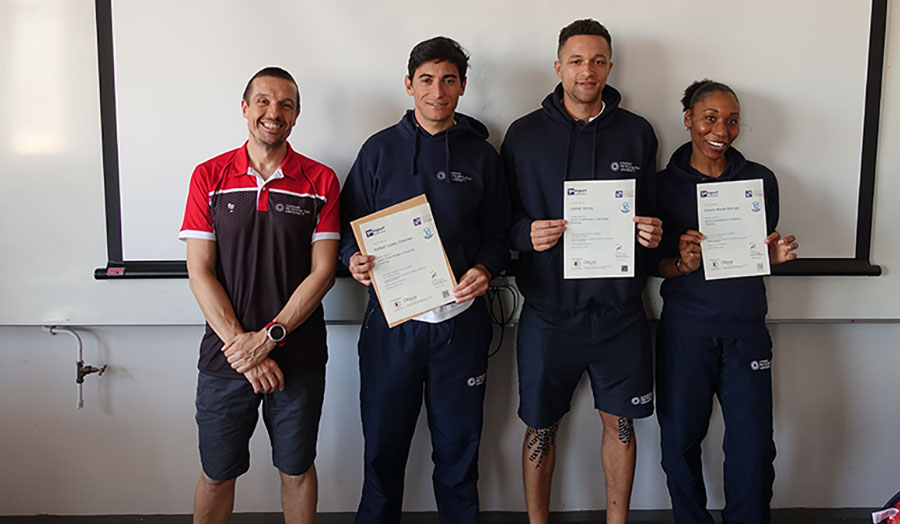
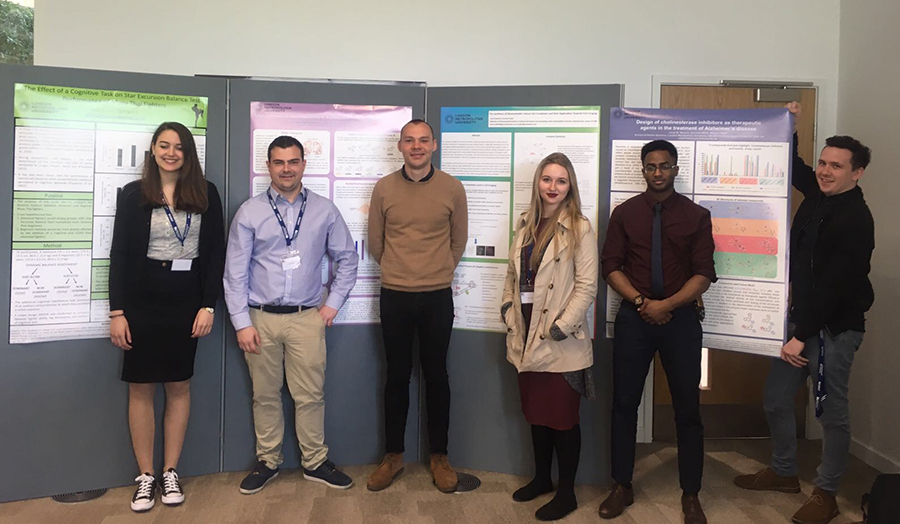
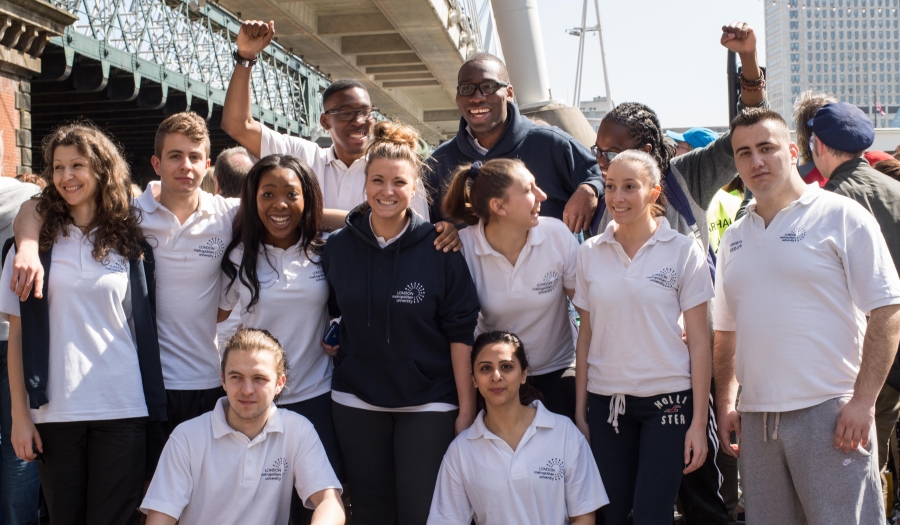


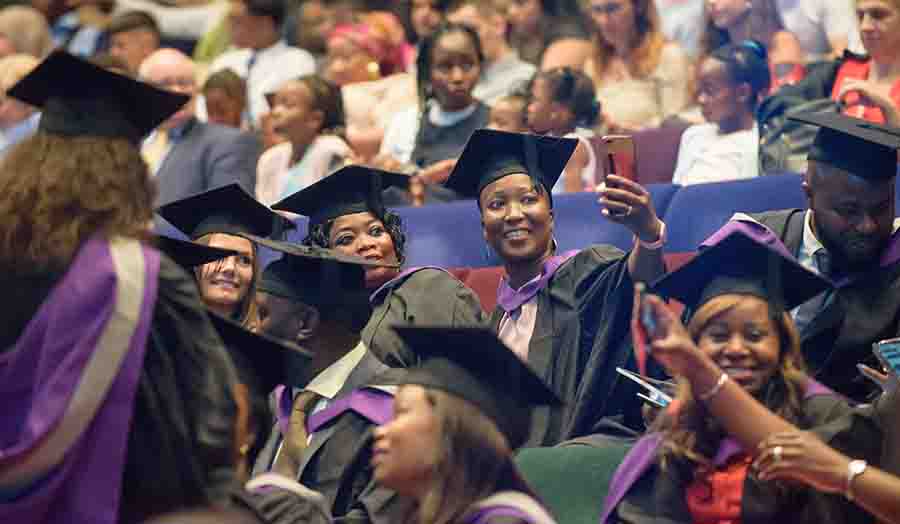
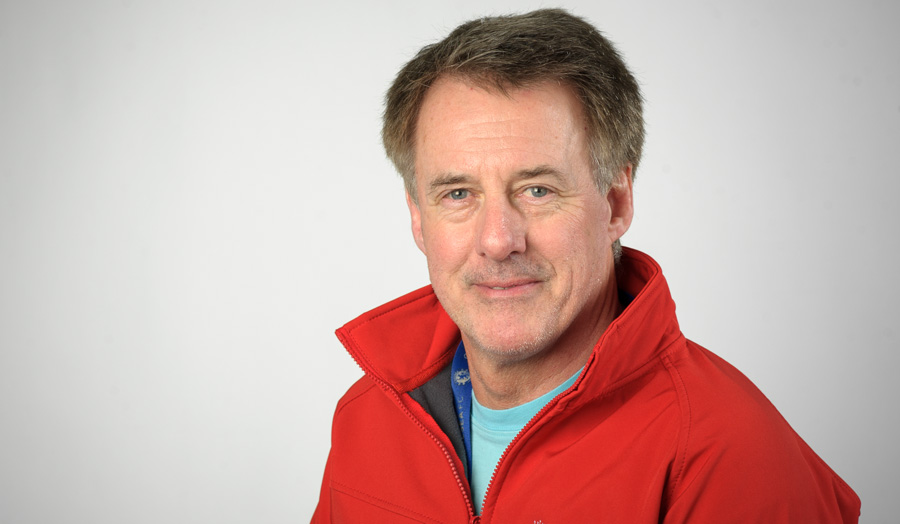
.png)

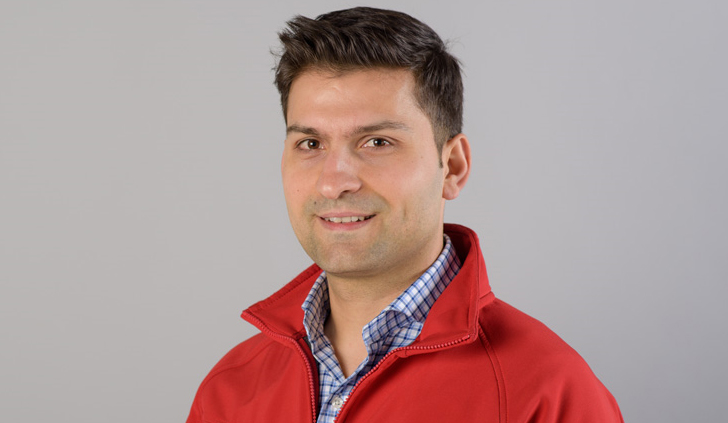
.png.jpeg)

